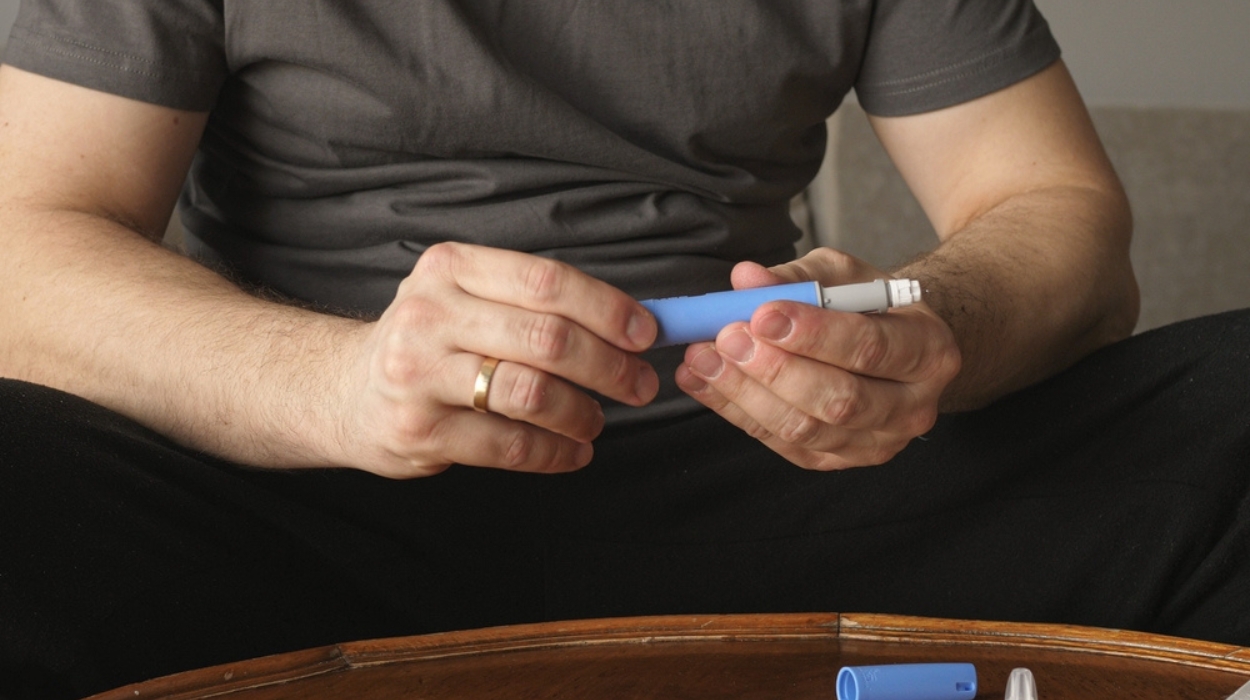Losing significant weight can be a major obstacle. When faced with diet trends, health and wellness supplements, and weight loss medications, deciding which weight loss path is best can feel overwhelming.
Ozempic, originally designed to treat type 2 diabetes, has the unintended side effect of weight loss. Due to this side effect, this medication has been prescribed “off-label” for the treatment of weight loss in obese and overweight individuals. Ozempic has demonstrated[1] promising results in causing significant weight loss, and its active ingredient, semaglutide, was approved for use in obesity[2] in 2021 by the FDA under the name Wegovy.
Due to its many health benefits,[3] your doctor may decide that a prescription weight loss medication, like Ozempic, may be right for you.
How To Take Ozempic For Weight Loss?
Ozempic is a prescription medication that is administered as a once-weekly subcutaneous injection for weight loss. It is vital to follow the following five tips to maximize the benefits of Ozempic:
- Gradually increase the dosage.
- Consistently take Ozempic, and do not miss doses.
- Combine Ozempic with lifestyle changes such as starting a healthy diet and improving sleep.
- Avoid medication interactions. This is especially important for individuals on other medications that control blood sugar.
- Take Ozempic under the guidance of a medical professional.
How To Take Ozempic For Weight Loss
Ozempic[4] is a medication physicians prescribe to assist diabetes and obesity patients achieve substantial weight loss. To help you better understand how to take Ozempic for weight loss, we will investigate how it works and how to administer it safely.
Although Ozempic has been proven safe and effective in clinical trials[3] for treating diabetes, there are essential factors to consider when taking Ozempic for weight loss to maximize its effects. Below, we discuss the top five ways to take Ozempic safely while reaping the benefits and boosting fat loss.
Gradually Increase Dosage
It is crucial to start at the lowest possible dose of Ozempic and gradually work your way up to avoid unwanted side effects. Most physicians will start patients at the lowest dose[4] of 0.25 mg subcutaneously once weekly for the first four weeks. Initiating treatment at a low dose[5] will give your body adequate time to adjust to the alterations in digestion that can cause nausea, vomiting, and diarrhea.
Gradually, your medical provider will raise the dosage until you reach the maximum effective dose. The maximum dose[4] of Ozempic is 2.1 mg once weekly, but your physician may stop dose escalation before this dosage if you are experiencing excessive side effects.
Consistently Take Ozempic
Consistently taking Ozempic, as your doctor suggests, is one of the most essential factors in achieving the best fat loss results. If your doctor prescribed Ozempic to use once a week, then you should take it once a week[4] on the same day each week.
This medication is formulated to remain at a consistent concentration in your body throughout the week after administration. But if you skip a dose, the concentration of Ozempic will drastically reduce and impact its effectiveness.
To avoid missing doses, try to pick a day of the week and time of day that fits your schedule to take Ozempic every week. Creating a schedule will help you stay consistent with your medication dosage and help you see the best results.
Combine With Lifestyle Modifications

It is essential to combine Ozempic with lifestyle modifications to diet and exercise to lose weight and keep it off. Lifestyle modifications include implementing a low-calorie diet, behavioral therapy, regular exercise, drinking enough water, and proper sleep hygiene.
Research[6] has demonstrated that semaglutide combined with a low-calorie diet and behavioral therapy resulted in statistically significant reductions in body weight compared to placebo. Behavioral therapy can help individuals understand the underlying causes of overeating or thinking patterns that may keep them stuck.
Implementing a low-calorie diet can cause you to enter a calorie deficit to lose weight. When you enter a calorie deficit,[7] you consume fewer calories than you burn daily. Being in a calorie deficit promotes weight loss and can support the benefits of Ozempic.
For individuals with diabetes, following a low-carbohydrate diet can boost weight loss. To calculate the daily carbs for people with diabetes, track your daily carbohydrate consumption. According to the Dietary Guidelines for Americans,[8] carbohydrates should account for 45% to 65% of daily calories. To understand how many carbs a day to lose weight, you should eat between 45%-65% of your total calories as carbs.
Sleep impacts weight loss. Research[9] has shown that sleep deprivation can cause weight gain. Sleep hygiene practices[10] can improve sleep quality. To support weight loss with Ozempic, try getting at least seven hours of sleep a night and implement sleep hygiene practices.
Drinking water can boost weight loss on Ozempic. To ensure that you are adequately hydrated, drink at least eight 8-ounce glasses of water daily to support weight loss[11] efforts. Staying well-hydrated will limit the chances of confusing thirst with hunger.
Adding exercise can help with weight loss. Research[12] has demonstrated that exercise can lead to significant reductions in weight and visceral fat.
Avoid Medication Interactions
In general, taking Ozempic simultaneously with other prescription drugs is safe. For many individuals, linking the once-weekly injection at the same time as other medicines may help patients remember to take it consistently.
But before starting Ozempic, it is crucial to understand that it has the potential to interact with certain medications and cause unwanted side effects.
This is particularly true for individuals already on medications that lower their blood glucose levels. These medications put an individual at a higher risk[4] of a specific side effect of Ozempic: hypoglycemia.
Hypoglycemia[13] is when blood sugar levels become dangerously low. A person with low blood glucose levels may feel shaky, sweaty, nervous or anxious, irritable, confused, dizzy, or hungry.
If left untreated, it can lead to severe hypoglycemia, resulting in confusion, difficulty walking or seeing, seizures, and even death.[13] Understanding these risks before starting Ozempic for fat loss is paramount. This will ensure your physician can adjust other medications that augment blood sugar levels to keep your blood sugar stable.
Ozempic also causes slowed digestion, which may impact the absorption of oral medications.[4] Although in clinical trials,[4] Ozempic did not influence the absorption of oral medications to a significant degree, it is still a potential consideration to be aware of.
If you take oral medications, discuss the potential impact of delayed gastric emptying on medication absorption or co-existing medical conditions such as gastroparesis with your medical provider.
Take Ozempic Under Professional Guidance

Ozempic is a prescription medication and should always be taken under the guidance of a healthcare professional. Your physician must assess your health status before starting this medication to ensure it is safe.
Due to Ozempic’s effects on slowing gastric motility, it often causes gastrointestinal side effects. The most common side effects[14] include nausea, vomiting, abdominal pain, diarrhea, and constipation. Your physician can help you cope with unwanted side effects by slowing your dose increase schedule or prescribing medications that can ease gastrointestinal symptoms.
Ozempic can also cause more severe side effects,[4] such as pancreatitis, acute kidney failure, and allergic reactions. Individuals with a family history of medullary thyroid carcinoma or multiple endocrine neoplasia, type 2, are at particularly increased risk for thyroid tumors while on this medication. It is crucial to be evaluated by a healthcare provider familiar with your medical history before initiating treatment with Ozempic to avoid serious complications.
How Long To Take Ozempic For Weight Loss
Ozempic is intended to be a long-term treatment for weight loss as its fat loss effects are most significant when used consistently.[15] Individuals need to understand that losing weight with Ozempic can take a considerable amount of time and that, if stopped early, can result in weight regain.
Research[1] has demonstrated increased weight loss as time continues on Ozempic, with patients losing around 5.9% of their total body weight at three months and 10.9% by six months. A three-month change in Ozempic therapy can almost double weight loss percentages, so sticking with Ozempic therapy is crucial for the best results.
Additionally, research[16] has demonstrated that stopping treatment with Ozempic results in regaining weight. Before starting Ozempic therapy, it is essential to understand that to keep the weight off, you must continue treatment indefinitely. Lifestyle changes are essential to maintain your weight after this treatment. It is not a quick fix or magic solution to weight issues.
Although users should expect to stay on Ozempic long-term, the good news is research[17] has demonstrated that after two years of administration, Ozempic is safe and effective for long-term use. Once you reach your desired weight, your doctor will discuss determining your maintenance dose for chronic weight management.
How Much Ozempic To Take For Weight Loss
The optimal Ozempic dosing can differ from individual to individual, which is why it is so important to gradually work your way up under the care of your physician. By starting at the lowest recommended dose of 0.25 mg once weekly and progressively increasing, your doctor can identify the appropriate dosage unique to you.
Although the maximum dose is 2.1 mg once weekly, only some can tolerate or require this dosage to lose weight. Your doctor will monitor your weight loss progress as you increase your dosage. If you lose weight at a lower dose, your doctor may keep you at this dose to avoid unwanted side effects.
On the other hand, some individuals will not notice weight loss at lower doses and may need to increase to a higher dose to achieve the desired results. In clinical trials,[15] the most significant weight loss results were achieved at dosages up to 2.4 milligrams weekly. These findings led to the approval of Wegovy,[15] an FDA-approved weight loss medication with the same active ingredient as Ozempic, semaglutide, but at this higher dose.
For individuals with diabetes, your Ozempic dose may need to change due to alterations in physical activity or exercise, increased stress, weight gain or loss, illness, change in diet, fever, trauma, infection, surgery, or other medicines you take.
How Often To Take Ozempic For Weight Loss
Ozempic dosing must be strictly adhered to. Taking too much or too little of Ozempic can be dangerous.
In general, most individuals will be directed to administer Ozempic once weekly[4] as a subcutaneous injection on the same day each week at the same time. Remember to be consistent with Ozempic dosing to obtain proper blood sugar control and lose weight.
If you miss an Ozempic injection, take the missed dose as soon as possible, within five days of the missed dose.[4] If more than five days have passed since the missed dose, skip the missed dose and take your next dose on the regularly scheduled day. Never double up on doses, as this can cause dangerously low blood sugar levels.
Conclusion
Ozempic is a prescription medication that is used off-label for the treatment of overweight and obesity. Individuals who take Ozempic for weight loss see substantial reductions[1] in their weight over a three to six-month period.
If your doctor is considering Ozempic treatment, you need to follow dosing instructions, never skip doses, and integrate healthy lifestyle changes to see the maximum benefits. Once you reach your ideal weight, your medical practitioner will work with you to find a maintenance plan to keep you healthy and feeling your best.
Frequently Asked Questions
There is no best time of day to take Ozempic for weight loss. Taking Ozempic at a time that is easy to stay consistent with can help you avoid missing doses to maximize weight loss.
To get the best weight loss results, combine Ozempic with lifestyle changes such as a healthy, low-calorie diet and exercise, take the medication as prescribed, and ensure you are at the highest tolerated dose.
Losing weight takes time. Research[1] has demonstrated weight loss increases as time continues on Ozempic. Patients in this one study lost around 5.9% of their total body weight at three months and 10.9% by six months.
Research[1] has demonstrated individuals can lose a considerable amount of weight on Ozempic, with an average loss of 10% by 24 weeks. Results may differ based on individual characteristics, lifestyle modifications, and medication dosing, among other factors.
 Expert's opinion
Expert's opinion

